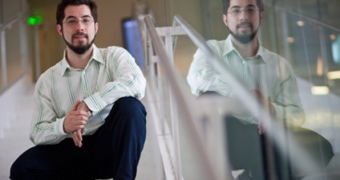Scientists at the Massachusetts Institute of Technology (MIT) are currently working on a new treatment for the human eye, which could potentially restore sight in patients whose blindness was caused by the degenerative condition called retinitis pigmentosa.
There are currently more than 1 million people who are blind in the United States alone, and about 10 percent of them lost their sight due to this disease. What RP does is it destroys light-sensing cells in the retina, therefore preventing the conversion of light into electrical signals.
When this happens, there are no signals for the visual processing area of the brain to handle, and the sensation of blindness occurs. At this point, there are no clear strategies aimed at combating this disorder, but the MIT team is making considerable headway in developing a new approach.
Scientists at the University of Southern California (USC) are using technologies developed by MIT and other research groups to force cells in the retina that are not usually involved in detecting light to become light-sensitive.
Most likely, they will never do their jobs as efficiently as actual light-sensing cells did it, but at least patients will regain their ability to see. In a study conducted on blind mice, researchers gave back the animals the ability to navigate a maze.
“We don’t know for sure what the animals are consciously seeing, but this study indicates that the mice can make cognitive use of their visual information,” explains MIT Media Lab assistant professor Ed Boyden, who is also a member of the McGovern Institute for Brain Research.
The expert is also an author of a new scientific paper describing the findings, which is published in the April 19 online issue of the esteemed journal Molecular Therapy. The investigation was led by USC Institute for Genetic Medicine expert Alan Horsager.
He says that optogenetics – this new field of research – holds great promise for restoring sight in this particular subset of blindness patients. If this objective were achieved, then it would represent a tremendous achievement in the field of medicine.
“It’s a very targeted approach that maintains the natural processing of the retina,” Horsager explains.
“There is a lot more to understand, but initial indications suggest we have developed something that can have enormous benefit to people,” he goes on to say.
“Pre-clinical studies are the next step to determine the potential therapeutic benefit for humans,” the expert concludes.

 14 DAY TRIAL //
14 DAY TRIAL //